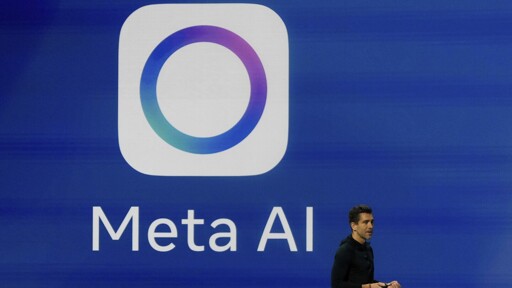Grab em by the intellectual property! When you’re a multi-billion dollar corporation, they just let you do it!
I’ll leave this here from another post on this topic…

It sounds like the precedent has been set
🏴☠️🦜
This is the notorious lawsuit from a year ago:
a group of well-known writers that includes comedian Sarah Silverman and authors Jacqueline Woodson and Ta-Nehisi Coates
The judge enforces that AI training is fair use:
But the actual process of an AI system distilling from thousands of written works to be able to produce its own passages of text qualified as “fair use” under U.S. copyright law because it was “quintessentially transformative,” Alsup wrote.
This is a second judgement of this type this week.
Alsup? Is this the same judge who also presided over Oracle v. Google over the use of Java in Android? That guy really does his homework over cases he presides on, he learned how to code to see if APIs are copyrightable.
As for the ruling, I’m not in favour of AI training on copyrighted material, but I can see where the judgement is coming from. I think it’s a matter of what’s really copyrightable: the actual text or images or the abstract knowledge in the material. In other words, if you were to read a book and then write a summary of a section of it in your own words or orally described what you learned from the book to someone else, does that mean copyright infringement? Or if you watch a movie and then describe your favourite scenes to your friends?
Perhaps a case could be made that AI training on copyrighted materials is not the same as humans consuming the copyrighted material and therefore it should have a different provision in copyright law. I’m no lawyer, but I’d assume that current copyright law works on the basis that humans do not generally have perfect recall of the copyrighted material they consume. But then again a counter argument could be that neither does the AI due to its tendency to hallucinate sometimes. However, it still has superior recall compared to humans and perhaps could be the grounds for amending copyright law about AI training?
Acree 100%
Hope we can refactor this whole copyright/patent concept soon…
It is more a pain for artists, creators, releasers etc.
I see it with EDM, I work as a Label, and do sometimes produce a bit
Most artists will work with samples and presets etc. And keeping track of who worked on what and who owns how much percent of what etc. just takes the joy out of creating…
Same for game design: You have a vision for your game, make a poc, and then have to change the whole game because of stupid patent shit not allowing you e.g. not land on a horse and immediately ride it, or throwing stuff at things to catch them…
I’m inclined to agree. I hate AI, and I especially hate artists and other creatives being shafted, but I’m increasingly doubtful that copyright is an effective way to ensure that they get their fair share (whether we’re talking about AI or otherwise).
In an ideal world, there would be something like a universal basic income, which would reduce the pressure on artists that they have to generate enough income with their art, this would allow artists to make art less for mainstream but more unique and thus would, in my opinion, allow to weaken copyright laws
Well, that would be the way I would try to start change.
I would go a step further and have creative grants to people. It would work in a way similar to the BBC and similar broadcasters, where a body gets government money and then picks creative projects it thinks are worthwhile, with a remit that goes beyond the lowest common denominator. UBI ensures that this system doesn’t have a monopoly on creative output.
Agree 100%!
We need more Kulturförderung!
Your last paragraph would be ideal solution in ideal world but I don’t think ever like this could happen in the current political and economical structures.
First its super easy to hide all of this and enforcement would be very difficult even domestically. Second, because we’re in AI race no one would ever put themselves in such disadvantage unless its real damage not economical copyright juggling.
People need to come to terms with these facts so we can address real problems rather than blow against the wind with all this whining we see on Lemmy. There are actual things we can do.
One way I could see this being enforced is by mandating that AI models not respond to questions that could result in speaking about a copyrighted work. Similar to how mainstream models don’t speak about vulgar or controversial topics.
But yeah, realistically, it’s unlikely that any judge would rule in that favour.
Terrible judgement.
Turn the K value down on the model and it reproduces text near verbatim.
Ah the Schrödinger’s LLM - always hallucinating and also always accurate
There is nothing intelligent about “AI” as we call it. It parrots based on probability. If you remove the randomness value from the model, it parrots the same thing every time based on it’s weights, and if the weights were trained on Harry Potter, it will consistently give you giant chunks of harry potter verbatim when prompted.
Most of the LLM services attempt to avoid this by adding arbitrary randomness values to churn the soup. But this is also inherently part of the cause of hallucinations, as the model cannot preserve a single correct response as always the right way to respond to a certain query.
LLMs are insanely “dumb”, they’re just lightspeed parrots. The fact that Meta and these other giant tech companies claim it’s not theft because they sprinkle in some randomness is just obscuring the reality and the fact that their models are derivative of the work of organizations like the BBC and Wikipedia, while also dependent on the works of tens of thousands of authors to develop their corpus of language.
In short, there was a ethical way to train these models. But that would have been slower. And the court just basically gave them a pass on theft. Facebook would have been entirely in the clear had it not stored the books in a dataset, which in itself is insane.
I wish I knew when I was younger that stealing is wrong, unless you steal at scale. Then it’s just clever business.
Except that breaking copyright is not stealing and never was. Hard to believe that you’d ever see Copyright advocates on foss and decentralized networks like Lemmy - its like people had their minds hijacked because “big tech is bad”.
What name do you have for the activity of making money using someone else work or data, without their consent or giving compensation? If the tech was just tech, it wouldn’t need any non consenting human input for it to work properly. This are just companies feeding on various types of data, if justice doesn’t protects an author, what do you think it would happen if these same models started feeding of user data instead? Tech is good, ethics are not
How do you think you’re making money with your work? Did your knowledge appear from a vacuum? Ethically speaking nothing is “original creation of your own merit only” - everything we make is transformative by nature.
Either way, the talks are moot as we’ll never agree on what is transformative enough to be harmful to our society unless its a direct 1:1 copy with direct goal to displace the original. But thats clearly not the case with LLMs.
Accuracy and hallucination are two ends of a spectrum.
If you turn hallucinations to a minimum, the LLM will faithfully reproduce what’s in the training set, but the result will not fit the query very well.
The other option is to turn the so-called temperature up, which will result in replies fitting better to the query but also the hallucinations go up.
In the end it’s a balance between getting responses that are closer to the dataset (factual) or closer to the query (creative).
“hallucination refers to the generation of plausible-sounding but factually incorrect or nonsensical information”
Is an output an hallucination when the training data involved in the output included factually incorrect data? Suppose my input is “is the would flat” and then an LLM, allegedly, accurately generates a flat-eather’s writings saying it is.
The enemy is at the same time too strong and too weak.
Bad judgement.
Any reason to say that other than that it didn’t give the result you wanted?
yes







